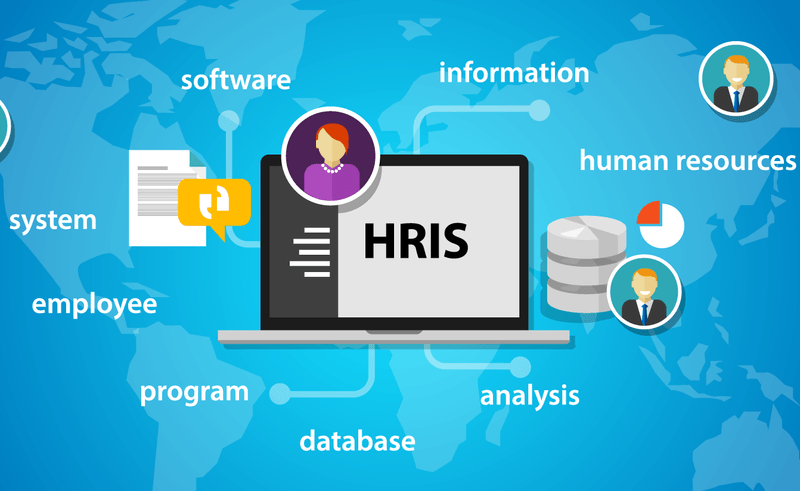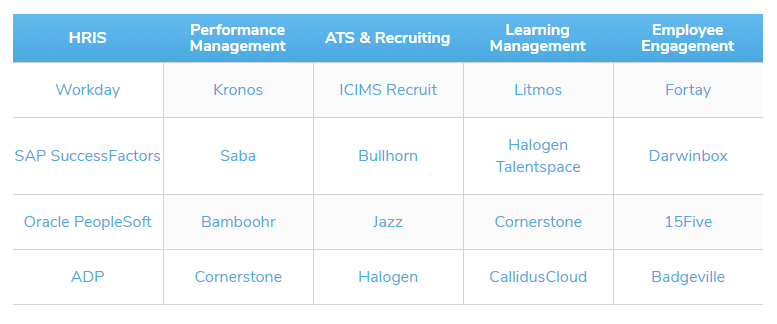If you run any business and you heired HR’s for managing your employees, that was outdated fashion. The growing human resources (HR) software market is forecasted to reaches upto $10.9 billion by 2023. There was many difficulties, you have to face while on managing your employees properly.
As well as you spent a lot on your HR Managers, and other resources. But now, Most modern businesses use some kind of Human Resources (HR) software to assist with managing your employees.
What Is HRMS?
A human resource management system (HRMS) is comprehensive software that integrates core and strategic HR functions into one solution. It typically features an employee self-service portal and a centralized database. It also automates administrative processes, streamlines recruiting and reduces turnover.
Any company software that will help you to manage employee data and HR related jobs can be contemplated HR program. HR software techniques help with handling individuals, automating manual jobs, and maintaining data organized.
These HR software obviously saves labour time for supervisors and HR personnel via automation. But in addition, it helps with HR processes which allow for greater preparation, budget management, and decision making.
HR applications makes it feasible to view, by way of instance. The number of workers are required at particular times annually based on historic statistics so that recruiting resources could be allocated and invisibly consequently. You will find many different ways a company might gain from relying on applications instead of faulty and cluttered paper documents.
Types Of HRMS Software

There are two types of HRMS Softwares:
- Specialized HR Software: Specialized HR software focuses on one module or HR function, such as recruiting or payroll. It typically has advanced functionality and many features. It’s generally offered by smaller vendors that can focus on incorporating emerging technology into their platforms. Best-of-breed solutions in the HR market are usually specialized software.
- Comprehensive HR Software: Comprehensive HR software (often referred to as HRMS, HRIS or HCM software) covers many modules and has broad functionality. It’s generally provided by large software vendors that have stayed competitive over the years by acquiring and integrating smaller vendors and specialized software. It benefits companies that want a single, integrated solution to cover their HR needs.
Best HR software vendors:
>
If you are knowledgeable about HR software and wish to compare a number of the very best sellers in the business, have a look above our vendor listing.
Different Types of HR Software
There are many different types of HR software that can perform a variety of HR tasks. Some solutions are comprehensive, encompassing most or all of the functions of HR management. Other solutions are specialized and offer assistance with only one or two HR tasks.
1. On-Premises HR Software
On-premises HR software is software that is installed on individual computers and operates within a small network within an organization. The software can only be accessed and used from the computers that it has been installed on. While this may be secure and lower in cost than cloud-based software, it’s difficult to update and inconvenient for most organizations.
2. Cloud Based HR Software
Most HR software that is used in organizations today is cloud based. Cloud based HR software can be called up on devices that have internet access using logins, allowing for greater flexibility and mobility. This type of access is especially convenient for mobile workforces, but can also allow employees in any industry to access their own personal information and make changes if self-service options are in place.
Features Of HR Software
HR software features can vary from system to system, but often include:
1. Core HR (Personnel Tracking)
- Employee database
- Job information
- Current and historical salary data
- Full time/part time status
- Employee availability
- Employment anniversaries
2. Time And Attendance
- Workforce scheduling
- Time tracking
- Absence management
- PTO and sick time monitoring
- Kiosks and/or biometric time clocks
3. Payroll
- Salary tracking
- Bonuses
- Paycheck calculations
- Tax withholdings and garnishments
- Tax filing and reporting
- Direct deposit
- Reporting
4. Employee Self-Service
- Employee access to personal information
- Benefits enrollment access
- Time off requests
- Payroll information
- Company announcements
Benefits Of HR Software
The benefits of HR software can vary widely depending on the type of software that’s selected and the company’s characteristics. The main universal advantage is the labor time that’s saved doing mundane administrative tasks. This time can be redirected towards more lucrative or productive tasks that help to better the organization.
Depending on the software that’s selected and the way it’s used, companies may see a decrease in errors with the elimination of double data entry and an improvement in organization with the introduction of electronic records. Additionally, there may be space and cost savings due to minimized use of paper, paper clips, ink, and associated supplies.






